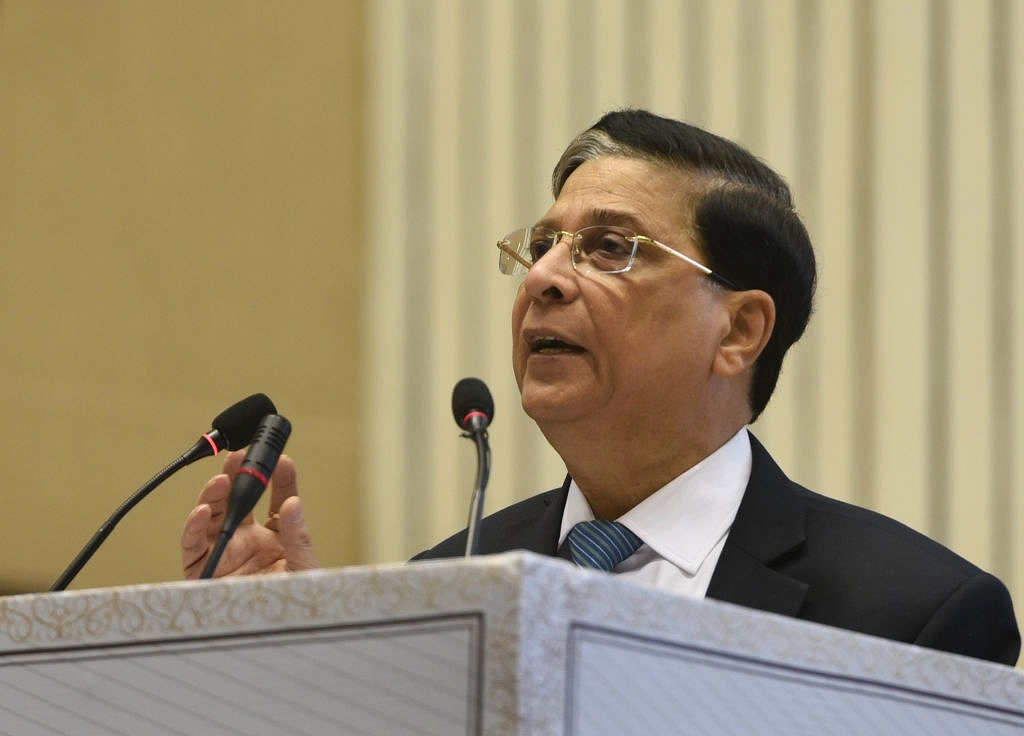Insta
Allocation Of Cases: Chief Justice of India Is The Master Of Roster, Supreme Court Rules

CJI Dipak Misra. (Sushil Kumar/Hindustan Times via Getty Images)
The Supreme Court today (6 July) ruled that “the Chief Justice of India is the master of roster” and that there is no dispute over this. The bench of Justices A K Sikri and Ashok Bhushan rejected former law minister Shanti Bhushan's plea to have a Collegium of Supreme Court judges collectively allocate cases in the apex court rather than leave the entire power in the hands of the CJI in his administrative capacity as ‘Master of Roster’.
In their ruling, the justices said though the Constitution is silent on the role of the Chief Justice of India, it is based on sound convention and precedent. While observing that the expression Chief Justice of India will include only Chief Justice of India and not the collegiums, the bench said it is difficult to accept the argument of the petitioners that expression Chief Justice of India should mean the collegiums.
In a public interest litigation, Bhushan had alleged that “master of roster” cannot be an “unguided and unbridled” discretionary power, exercised arbitrarily by the Chief Justice of India by hand-picking the benches of select judges or by assigning cases to particular judges. Attorney General K K Venugopal had said that any attempt to delegate the power of allocation of cases to other judges would lead to a ‘chaos.’
The bench had earlier observed that Bushan’s plea should be tested on the touchstone of Article 145 (rules of the court governing its practices and procedures) of the Constitution. “Difficulties can always be resolved. We have to see what the Constitution has in mind,” Justice Shanti Bhushan had said earlier.
Introducing ElectionsHQ + 50 Ground Reports Project
The 2024 elections might seem easy to guess, but there are some important questions that shouldn't be missed.
Do freebies still sway voters? Do people prioritise infrastructure when voting? How will Punjab vote?
The answers to these questions provide great insights into where we, as a country, are headed in the years to come.
Swarajya is starting a project with an aim to do 50 solid ground stories and a smart commentary service on WhatsApp, a one-of-a-kind. We'd love your support during this election season.
Click below to contribute.
Latest